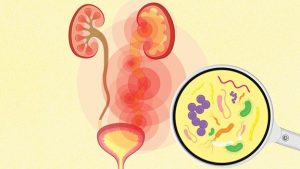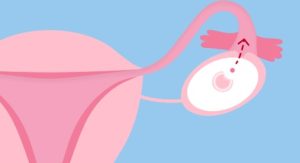Regular exercise provides a host of benefits for overall health and well-being. But did you know it can also enhance reproductive health?
From improving fertility to easing PMS symptoms, physical activity positively impacts the female reproductive system in various ways.
In this blog, we’ll explore 5 evidence-based ways that exercise can optimize reproductive health and support women through key stages of life like pregnancy and menopause. Let’s get into it!

Boost Your Reproductive Health with Exercise
Even moderate cardio and strength training routines of just 30 minutes a day can improve hormone levels, reduce inflammation, boost energy, regulate periods, strengthen the pelvic floor, and relieve reproductive health issues. And you don’t need an intense exercise regimen to see results. Simple walking, swimming, cycling, yoga, and other accessible activities offer reproductive benefits too.
As we outline the top advantages below, keep in mind that consistency is key. Also, sticking with exercise long-term is ideal to enhance reproductive wellness at any age.
-
Improves Fertility
Regular exercise can help boost fertility in both men and women. For women, exercise improves blood flow to the ovaries and uterus, which can help regulate menstrual cycles and enhance the maturation and quality of eggs. The improved circulation also provides a better environment for a fertilized egg to implant and develop.
For men, exercise promotes higher testosterone levels and seminal quality, both of which are linked to better fertility. It also improves blood flow to the testicles and regulates hormones involved in sperm production. Additionally, exercise helps manage weight and reduce stress, two other factors that impact fertility.
Aim for at least 30 minutes of moderate exercise most days of the week. Activities like brisk walking, swimming, cycling, and strength training provide great fertility benefits. But be sure not to overdo it, as excessive exercise can sometimes disrupt normal menstrual function. Overall, making exercise a regular habit is one of the best ways for couples to boost their natural fertility.
-
Eases PMS Symptoms
Physical activity can provide relief from the uncomfortable symptoms associated with premenstrual syndrome (PMS). During PMS, levels of serotonin, a brain chemical that boosts mood, are lower. Exercise helps by triggering the release of endorphins, chemicals that make you feel good. This can counteract the sadness, irritability, and anxiety caused by fluctuating serotonin.
Regular exercise also helps relax muscles and reduce cramping in the abdomen, back, and thighs. The increase in body temperature during physical activity seems to provide comfort as well.
-
Helps Manage Weight
Maintaining a healthy weight can be challenging, but is extremely beneficial when trying to conceive and have a healthy pregnancy. Being overweight or underweight can negatively impact fertility in both men and women.
Regular exercise helps manage weight by burning calories and building metabolism-boosting muscle. Even light exercise like walking for 30 minutes a day can help keep weight under control. Staying active also curbs emotional eating and stress eating, which can lead to weight gain.
For women, achieving a BMI in the normal range can increase ovulation regularity and the likelihood of conception. Being under or overweight can cause irregular menstrual cycles and anovulation (lack of ovulation). Normal BMI levels also reduce the risk of complications like gestational diabetes and preeclampsia during pregnancy.
For men, excess weight can affect sperm count and quality. However, being at a healthy weight ensures optimal reproductive health.
Overall, regular exercise helps manage weight for improved fertility, conception, and a healthier pregnancy. Maintaining normal weight levels through exercise and nutrition provides the best chances for reproductive success.
-
Strengthens Pelvic Floor
The pelvic floor muscles support the bladder, uterus, and bowels. Weak pelvic floor muscles can lead to urinary incontinence, which is a common problem during and after pregnancy. Kegel exercises target and strengthen these muscles.
Kegels involve contracting and relaxing the pelvic floor muscles. To do them:
- Tighten the muscles you use to hold in urine or gas. Hold for 3-5 seconds.
- Relax for 3-5 seconds.
- Repeat 10-20 times, at least 3 times per day.
When done regularly, Kegels improve pelvic floor strength. This prevents leakage from pressure during pregnancy and childbirth. Strong pelvic floor muscles also speed up postpartum recovery. Many women regain bladder control sooner after practicing Kegels throughout pregnancy.
Kegels are easy to do anywhere, anytime. Just remember to keep breathing while holding each contraction. Over time, it becomes effortless to engage these muscles during daily activities. With continued practice after childbirth, women can maintain pelvic floor strength and prevent urinary incontinence.
-
Reduces Menopause Symptoms
The fluctuation and decline of estrogen levels during perimenopause and menopause can lead to several unpleasant symptoms. Exercise helps regulate hormones and mitigate some of these effects.
Regular physical activity can help reduce hot flashes, night sweats, mood swings, anxiety, and trouble sleeping often associated with menopause. It assists the body in maintaining hormonal balance as estrogen levels change.
Exercise boosts endorphin levels acting as a natural mood enhancer. It can alleviate irritability, depression, and stress during the menopausal transition. The mental health benefits of routine workouts are well documented.
Physical activity also promotes higher-quality sleep at night. Getting regular exercise helps regulate sleep cycles, making it easier to fall and stay asleep. This can curb fatigue and improve daily energy levels.
Overall, staying active provides a multitude of benefits that counteract some of the most bothersome menopausal symptoms. A commitment to regular workouts helps women maintain health and well-being during this significant life transition.
Regular exercise can provide numerous reproductive health benefits for women. As outlined in this article, being physically active can increase fertility, alleviate PMS symptoms, assist in postpartum recovery, reduce menopause side effects, and more.
The key takeaway is that exercise enhances reproductive health at every stage of life. Whether you are trying to conceive, currently pregnant, or going through menopause, staying active is recommended. Aim for 150 minutes of moderate exercise per week, such as brisk walking, swimming, or cycling.
Any movement is helpful, even if it’s just taking the stairs or going for a short walk on your lunch break. Small amounts of activity each day can add up to big benefits over time. Prioritizing exercise is one of the best things you can do for your reproductive health and overall well-being.
Don’t wait until it’s too late – start being active today to feel your best at every age and life stage. Your body and mind will thank you.







